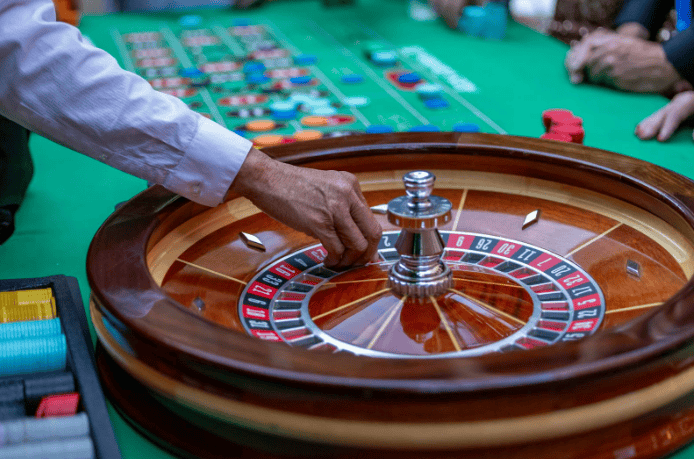Casinos reflect the psychology of risk, revealing how individuals actually think when money and entertainment are combined with each other. It is not all about winning or losing, but how we respond to risk.
Some people play because they want to have fun, some because they want the thrill, and others because they simply want to win. It is one of the reasons why fast payout casinos in US have grown to be so popular.
Nobody enjoys waiting around when they win. Quick withdrawals give players a sense of control and instant reward, despite the fact that even the game itself can be pure chance.
The reality is that each spin, roll, or card people play speaks of how humans make decisions.
The Thrill That Comes With Uncertainty
That moment right before you find out if you’ve won, that’s what keeps people coming back. The brain actually enjoys not knowing what’s going to happen.
Scientists say it releases dopamine, the same “feel good” chemical you get when you eat your favorite food or hear good news. Studies show that when dopamine levels rise, people are more likely to make risky choices, even without higher rewards
Casinos are aware of it and create everything around it. The music, the light, the applause, all these make the wait more thrilling. Most times, it’s not even the win that hooks people. It’s the feeling of “maybe this time.”

When Logic Gives Way to Emotion
Everyone knows the house usually wins. But when sitting at a table, logic doesn’t always win the fight. One might tell themself that they’d play just one more round. And they’d think their luck’s about to change. That’s the emotions doing the talking.
Casinos make it easy for players to listen to that side of themselves. The games are rapid and have no time, and so players forget how much time they have been playing. It is not very different in real life, as people do not mind risks when it makes them more confident or hopeful, even when the chances are not high.
The Illusion of Control
One of the most powerful forces in casino behavior is the feeling of control. Players tend to think that little things can determine the result of a game. They choose certain machines, repeat rituals, or rely on lucky numbers. These habits create the impression of influence, even in games based entirely on chance.
Experiments show that near-miss events increase persistence by about 30%, making players continue longer than intended. The feeling of control makes the experience more personal and keeps players engaged.
It is not skill that drives the result, but the psychology of risk—the structure of belief. This quiet illusion is what turns random moments into something meaningful, and it explains why players continue to take risks even when the odds remain the same.
Why Losing Feels So Personal
The experience of losing in a casino highlights the psychology of risk, as it goes beyond financial impact. According to psychologists, a loss triggers the same regions of the brain associated with physical pain.
It describes the reasons why individuals tend to keep on playing even after a loss. It is not about winning, but it is about alleviating the pain of losing.
Casino environments are built to soften this reaction. The lights remain bright, the music continues, and the movement never stops. The atmosphere removes silence, replacing it with rhythm and sound that keep players in motion.
Each detail works together to reduce hesitation, making it easier to stay even when the outcome is no longer in their favor.
Learning to Control Emotions and Reason
All of the choices in a casino are a combination of calculation and emotion— a core aspect of the psychology of risk. The luckiest usually are not the most consistent players but the most composed.
They understand when not to press the button, how to draw boundaries, and when to take a break. The distinction between the two is control and not chance.
Emotion is part of the experience, but reason defines the outcome. This balance extends beyond the casino floor. The awareness drives the decisions in spending, investment, and life.
Understanding the difference between intuition and anxiety helps individuals recognize when decisions are driven by insight or by stress.
Awareness of the influence of emotion on behavior enables individuals to make more understandable choices, particularly in situations where there is a perceived importance of stakes. Ultimately, restrained judgment is a very useful thing compared to the thrill of the situation.

Conclusion
Risk itself is not the issue. It’s an aspect of the way people develop, make choices, and progress. The real challenge lies in understanding what drives those choices. Casinos make that visible. Every sound, spin, and reaction highlights how excitement and emotion influence behavior.
The environment becomes a mirror of decision-making under pressure. It’s a powerful reflection of human nature, and it’s paying off, too. From January to August 2025, commercial gaming revenue reached $51.14 billion, which is about 9% higher than the same time last year.
Once that connection is understood, the psychology of risk begins takes on new meaning. It turns into something manageable, not to be avoided. The same consciousness that helps a composed player at the table apply to the choices outside the table demonstrates that control is not based on luck, but on why the risk is worth taking.


